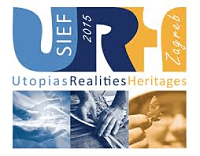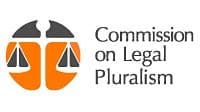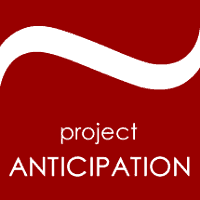Spring has almost arrived and with it comes a series of exciting events on the anthropological calendar. We did not feature any AAA’s CFPs in this list, since the deadline has already expired and THE biggest anthro conference in the world does not need more advertising. But we really liked the call for participation in a roundtable on cannabis policy. Check it out! In any case, there are many other delicacies to come this spring/summer all over Europe and beyond. Remember to contact Andrea @ andreak@allegralaboratory.net if you would like your event to be featured on our upcoming monthly list or simply to appear on our home page calendar. Short reports on symposiums, workshops, panels and conferences are also warmly welcome!
 REMINDER: SIEF2015 12th Congress: Utopias, Realities, Heritages. Ethnographies for the 21st Century
REMINDER: SIEF2015 12th Congress: Utopias, Realities, Heritages. Ethnographies for the 21st Century
21 – 25 June 2015, Zagreb, Croatia
Registration is now open. Deadline for early-bird discounted rates is 20 April 2015.
 EASA ANTHROMOB 2015 Workshop: Grounding (im)mobility: Embodiment, ephemera, ecologies
EASA ANTHROMOB 2015 Workshop: Grounding (im)mobility: Embodiment, ephemera, ecologies
10 – 11 September 2015, Institute of Social Sciences, University of Lisbon, Portugal
The aim of this workshop is to bring together scholars working on, and problematising, the (im)material dimensions of contemporary mobility with a particular emphasis on exploring embodiments, ephemera and ecologies that are often researched in isolation of one another. Whether it is the phenomenology of transport, migration, media, material culture, or the multiple moralities, imaginaries, and ontological horizons that interact through movement today, this workshop will challenge commonly clustered fields of analysis. The organisers envision sketching a more comprehensive, plural, and composite vision of mobility, and asking what kinds of collaborations and connections can emerge from approaching (im)materialities in mobilities as a possible unifying pattern of analysis. [more]
Deadline for submission of abstracts: 3 April 2015
 Taiwan Studies Programme Annual Conference: IN SEARCH OF NEW PERSPECTIVES, METHODS AND FINER FACTORS OF IDENTITY FORMATION— FROM EAST ASIA TO THE WORLD
Taiwan Studies Programme Annual Conference: IN SEARCH OF NEW PERSPECTIVES, METHODS AND FINER FACTORS OF IDENTITY FORMATION— FROM EAST ASIA TO THE WORLD
4 – 5 September 2015, St Antony’s College, University of Oxford, UK
Multiple, mercurial, flowing, strategic, transcultural and transnational, context-dependent and socially constructed – these are characteristics of contemporary identity observed by postmodernist theorists. Yet, a chronic debate is that these attributes can neither entirely fit into individuals’ perception of self-identity, nor thoroughly correspond with their sense of subjectivity when individuals take political actions or fulfil their particular roles in identity politics. More precisely, when the significant influence of social contexts – i.e., perceived history, social structure, the operation of state apparatus, etc., which mainly contribute the postmodernist characteristics of identity – has been widely recognised, how should we explain the heterogeneity of identity emerging in similar contexts? How should we account for the diversity of political action taken by individuals who are supposed to share the same identity? This conference proposes to regard East Asia as a starting point to deal with this analytic dilemma (yet, the scope of this conference is not limited to this region). [more]
Deadline for submission of abstracts: 10 April 2015
 International Conference of the Commission on Legal Pluralism in collaboration with the Department of Humanities and Social Sciences, Indian Institute of Technology Bombay
International Conference of the Commission on Legal Pluralism in collaboration with the Department of Humanities and Social Sciences, Indian Institute of Technology Bombay
14 – 16 December 2015, Indian Institute of Technology (IIT), Bombay, India
The 2015 international conference will pay particular attention to emerging areas that have gained in momentum due to processes of globalization, the emergence of ‘knowledge economies’, and the evolution of high-tech capitalism. Not surprisingly, debates and evolving policies on information technology, biotechnology, genetic engineering and intellectual property rights are forced to deal with issues of legal pluralism, perceiving a risk in high-technology regimes, which further exacerbate socio-economic inequalities and marginalize the already disadvantaged, especially in developing societies and ‘emerging economies’.
The conference will also address established themes that continue to cause significant concern, such as conflicts and contestations over property, land and natural resources; governance; religion, culture, custom and ethnicity; state and non-state laws; gender; kinship; patriarchy; human rights; development aid and cooperation; as well as migration; mobility; and transnationalism, while exploring how emerging and ‘old’ themes in the field of legal pluralism relate to each other in theory and practice. [more]
Deadline for submission of papers: 15 April 2015
 Workshop hosted by the International Institute for Asian Studies: Cross-border Exchanges and the Shadow Economy
Workshop hosted by the International Institute for Asian Studies: Cross-border Exchanges and the Shadow Economy
14 – 15 December 2015, Leiden University, Leiden, The Netherlands
Shadow economic activity has always been a characteristic feature of border economies. Given their unofficial or even illicit nature, transactions are usually based on networks and trust, and hence such informal economic behavior is also interpersonal, relational, and reciprocal in nature, in contrast to the impersonal and self-interest logic of formal economic exchange. Although falling outside of the formal regulatory regime, participants in various aspects of the shadow economy all seem to know how to play their parts, while transactions are conducted under specific norms and practices. The shadow economy is thus a highly organized and institutionalized one. What is intriguing is that the workings of these activities are perhaps no different from the formal economy. As such, activities in this shadow economy pose a subversive challenge to the boundary between formal and informal, and between shadow and the more open, free market economy. [more]
Deadline for submission of abstracts: 15 April 2015
 2nd Vienna Ethnography Lab: Practices of Care. Inequalities, Empowerment, Contradictions
2nd Vienna Ethnography Lab: Practices of Care. Inequalities, Empowerment, Contradictions
25 – 27 September 2015, University of Vienna, Austria
Over the last decades, care has received increasing attention in public discourse and scientific debates. This is not coincidental, but reflects the perception of a shift in the distribution of Care obligations between state, market and families as well as new forms of globalisation and migration. These debates around commodification and commercialisation of reproductive labour surrounded by an aura of crisis embedded in the current demographic trend toward aging societies in particular in the so-called Global North. As a result care has moved from being a concern of mostly feminist researchers to a central topic of various social science disciplines. Besides pointing to various inequalities along the lines of gender, ethnicity/nationality and class, care has been proven useful to explore the intersection of the “public” sphere of economy, and the supposedly private area of kinship. The laboratory’s goal is to provide a forum for intensive interdisciplinary discussions of young scholars’ ongoing or recently completed research in the field of care. [more]
Deadline for submission of applications: 15 April 2015
The International Journal of Law in Context and the Centre for Socio-Legal Studies at the University of Oxford: “Law in Context” Early Career Workshop
29 – 30 June 2015, Centre for Socio-Legal Studies, Oxford, UK
The purpose of this international workshop is to bring together scholars at a relatively early stage in their careers to support them in developing research projects and preparing publications to submit to scholarly journals in the field of socio-legal studies.
During the workshop scholars will make a presentation, take part in discussion, and receive feedback on their work from senior research staff at the Centre and the editorial team of the Journal. The best papers presented at the workshop will be considered for publication in the International Journal of Law in Context. [more]
Deadline for submission of applications: 17 April 2015
 First International Conference on ANTICIPATION
First International Conference on ANTICIPATION
5 – 7 November 2015, Trento, Italy
Anticipation is coming to the fore as an emerging field of study that is influencing a wide variety of disciplines. This international conference will explore the interaction among anticipation, uncertainty and complexity. Some questions that the organisers intend to raise are these: When does anticipation occur in behavior and life? What types of anticipation can be distinguished? What structures and processes are necessary for anticipatory action? How can anticipation be modeled? A better and more complete understanding of anticipation and its effects will improve theories and models of individual and collective human behavior and its consequences. The ability to anticipate in complex environments may improve the resilience of societies facing threats from a global proliferation of agents and forces by articulating uncertainties through anticipatory processes. [more]
Deadline for submission of papers: 30 April 2015
 Workshop: Regulating Religion: Normativity and Change at the Intersection of Law & Religion
Workshop: Regulating Religion: Normativity and Change at the Intersection of Law & Religion
14 – 15 December 2015, Faculty of Law National, University of Singapore
In most eras and cultures, law and religion relate dialectically. Every major religious tradition strives to come to terms with law by striking a balance between the worldly and the spiritual, the structural and the mystical, the rational and the sacred. Every major legal tradition struggles to align its formal structures and processes with the beliefs and values of its people. Thus, while law and religion can be conceptualized as distinct spheres of human life, they do not exist independently but are constantly interacting with and influencing each other. This workshop will engage emerging scholarship on the influence of religion on legal systems, both historically and currently, and vice versa. [more]
Deadline for submission of papers: 31 May 2015


